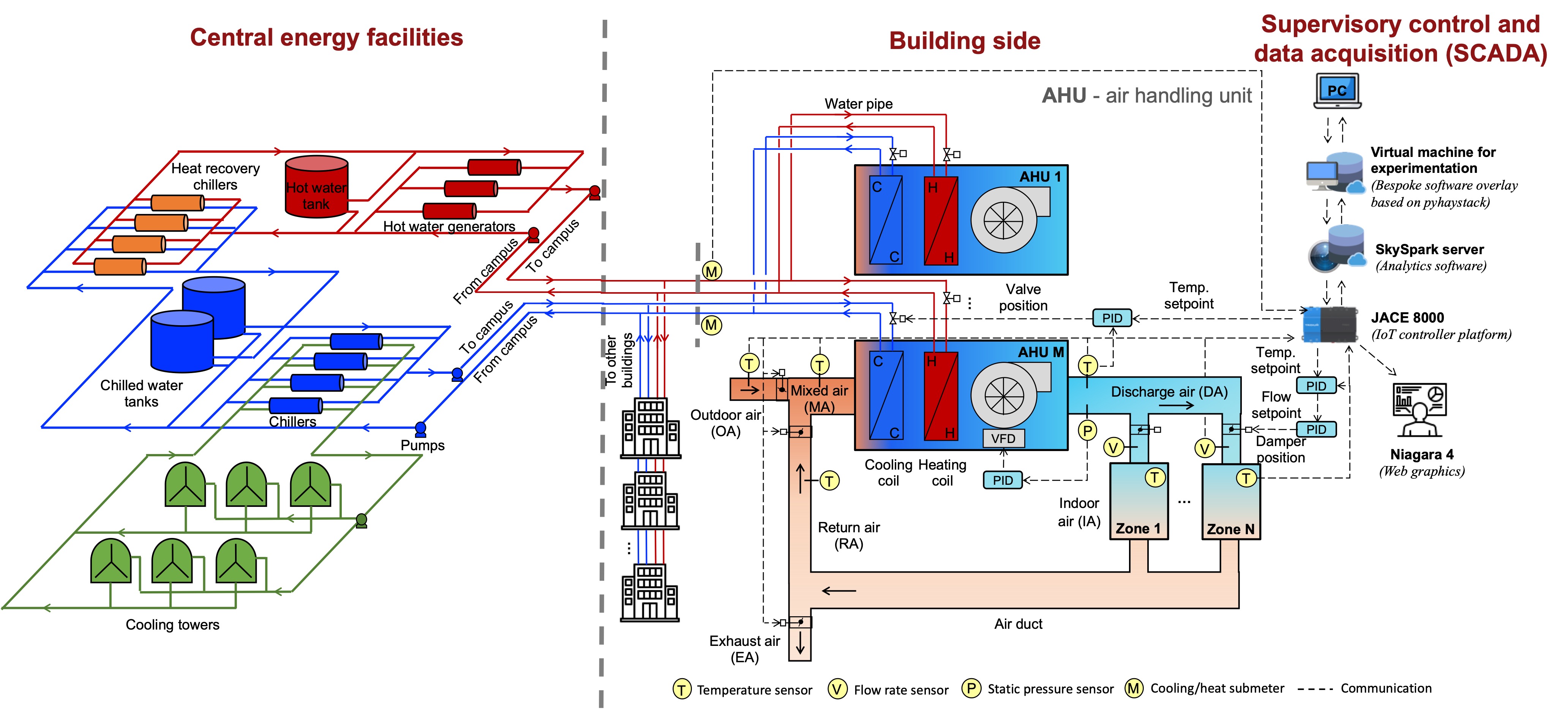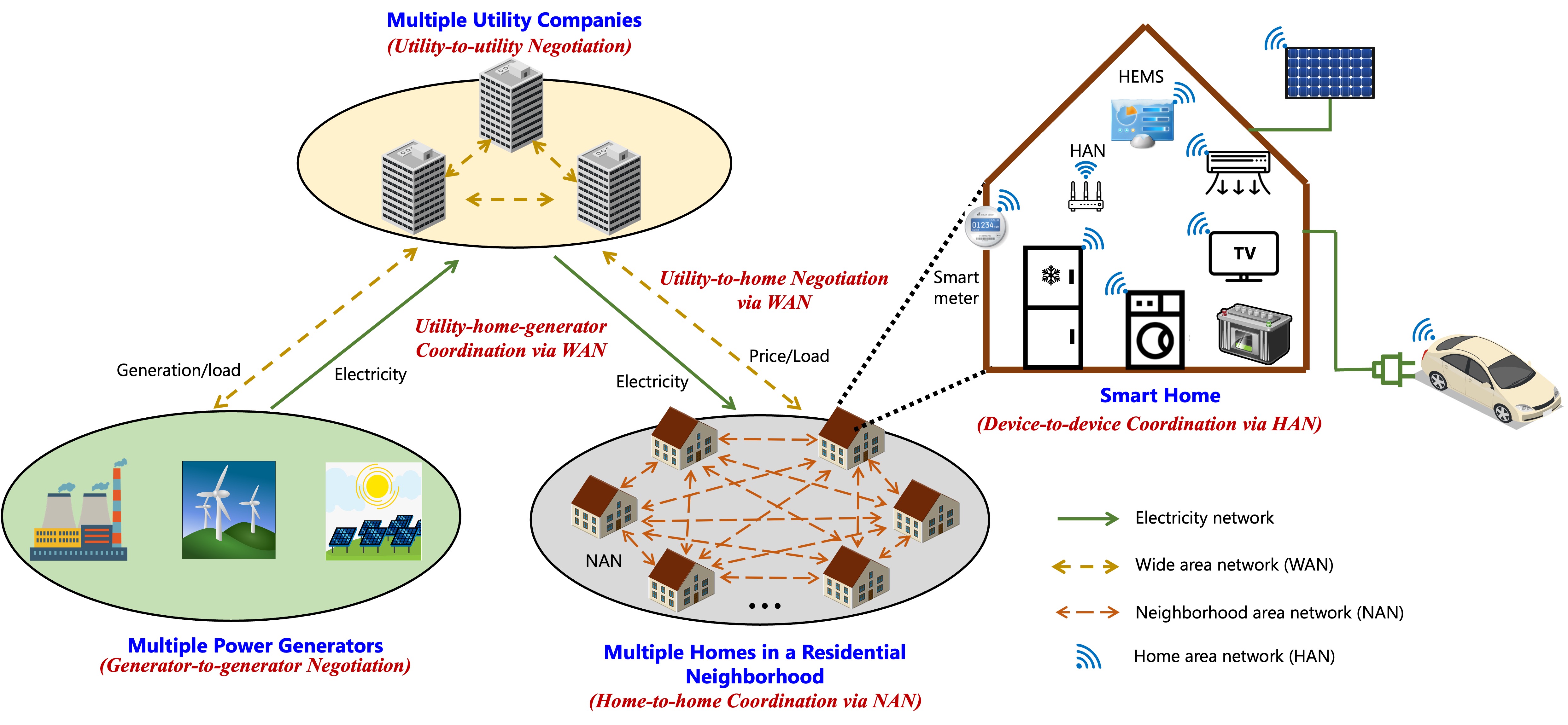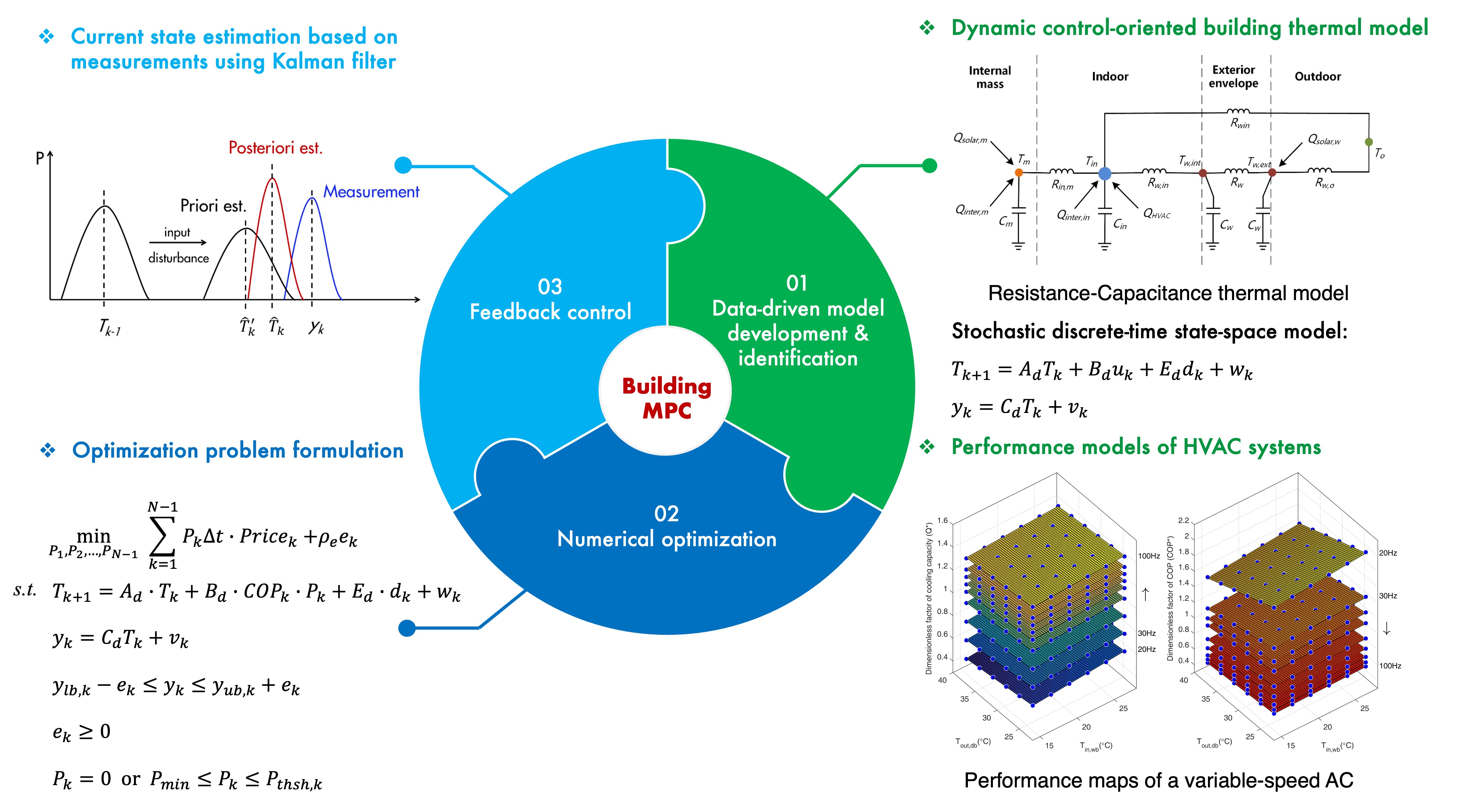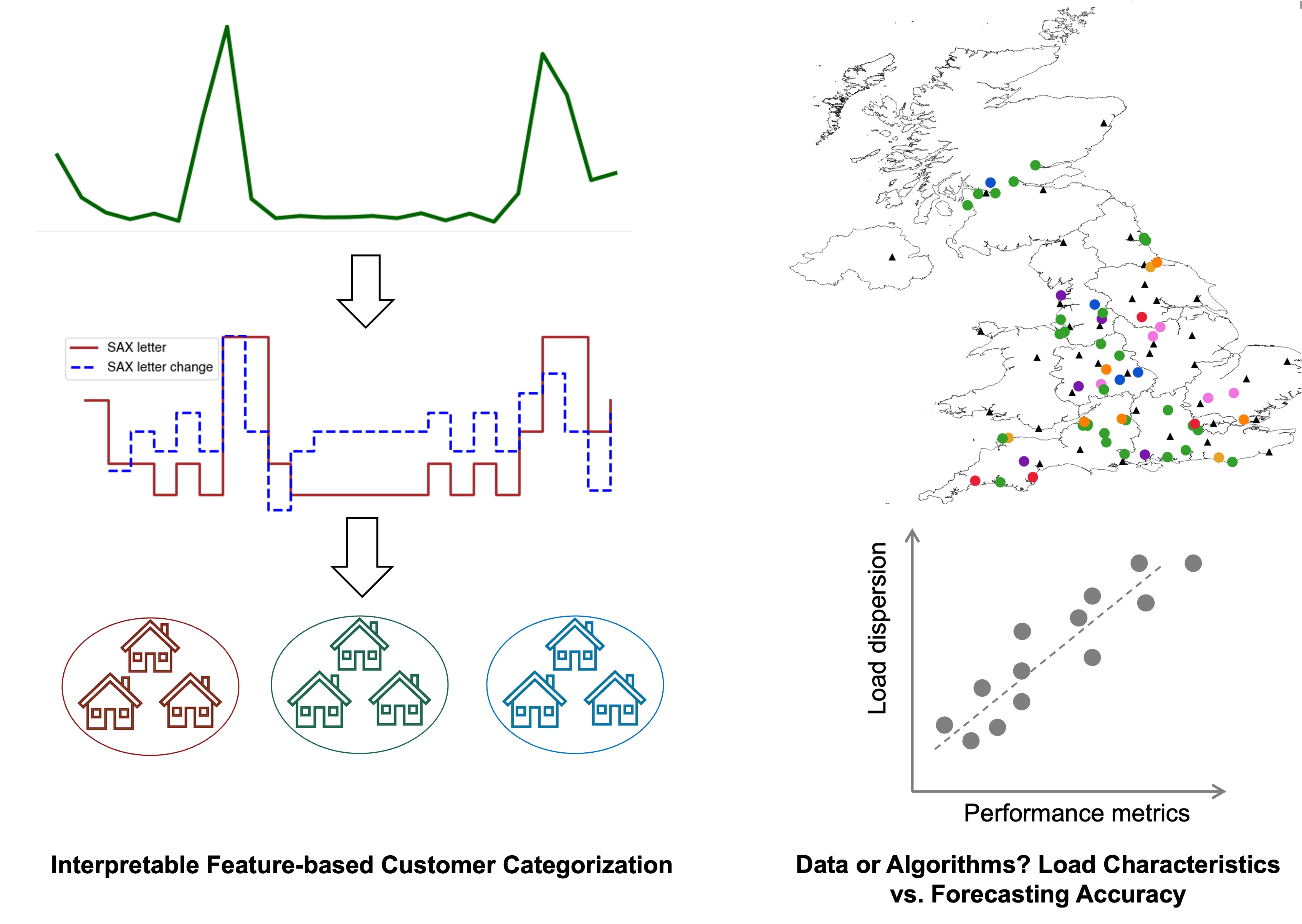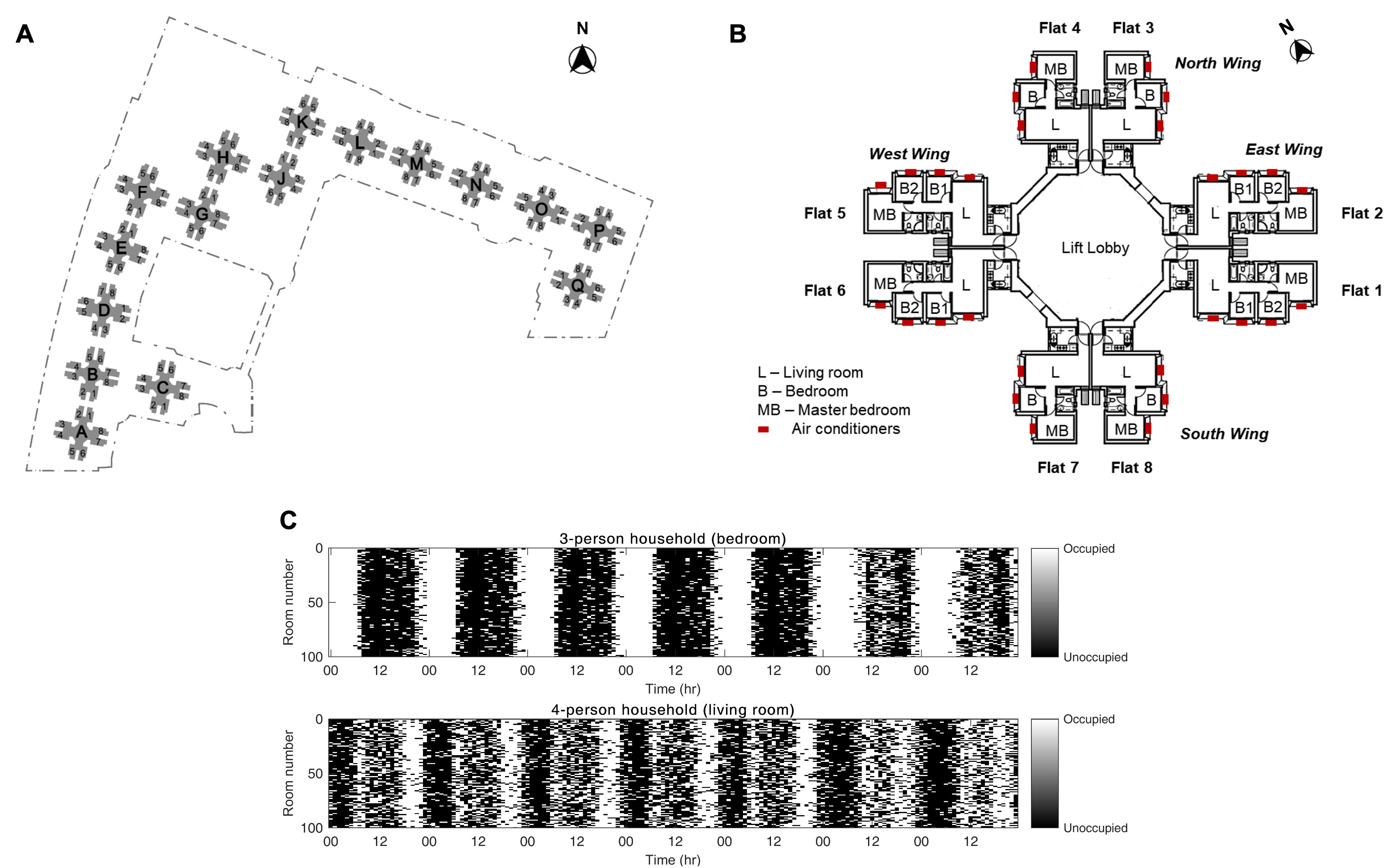Research Overview

Smart
Low-carbon
Energy-efficient
Demand-flexible
Climate-resilient
Equitable
Building, District, and Urban Energy Systems.
Our BIOR lab aims at developing sustainable and scalable technologies and computational tools to make building, district, and urban energy systems smart, low-carbon, energy-efficient, energy-flexible, climate-resilient, and equitable using optimization, learning, and control.
Our interdisciplinary research is at the interface of Building Science, Computer Science, and Control Engineering.
We employ a multifaceted approach that encompasses data analytics & machine learning, physics-based modeling & simulation, optimization & model-based optimal controls, as well as experiments. These approaches have been deployed across a spectrum of scales, spanning from equipment- through building- and community- to city-scale.
